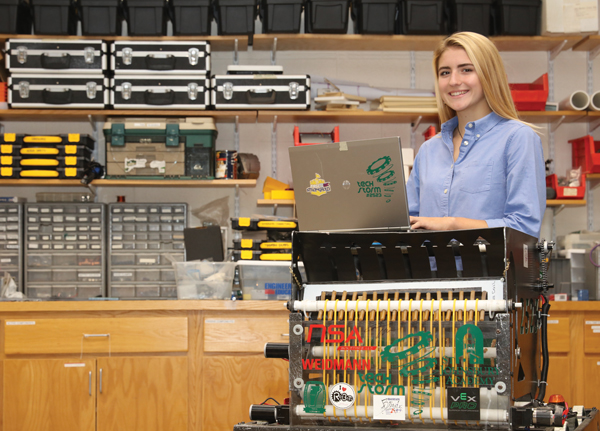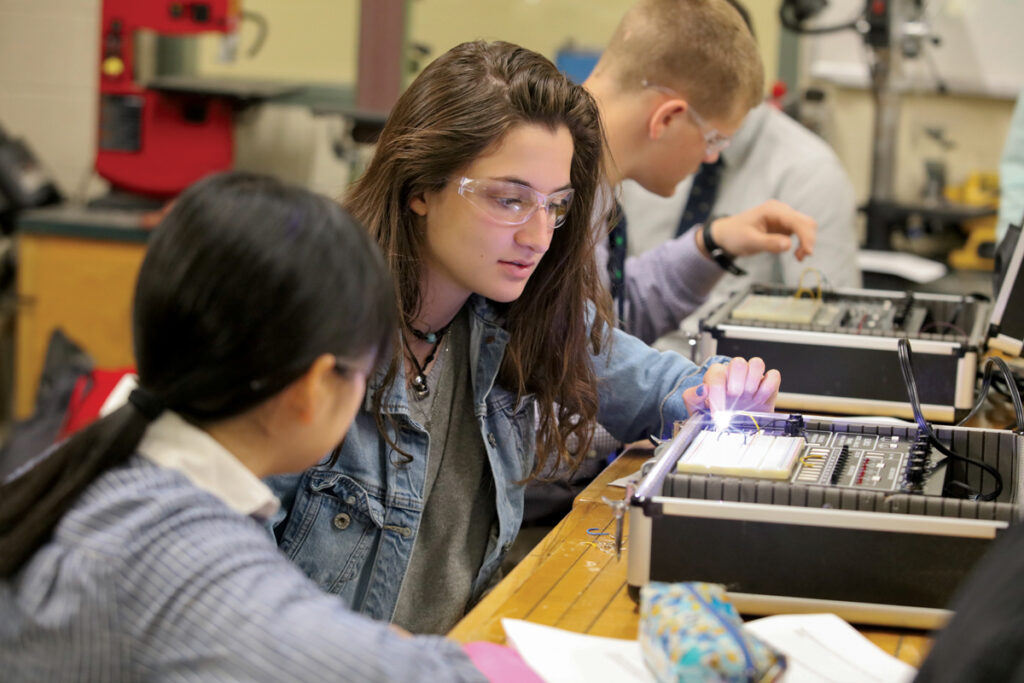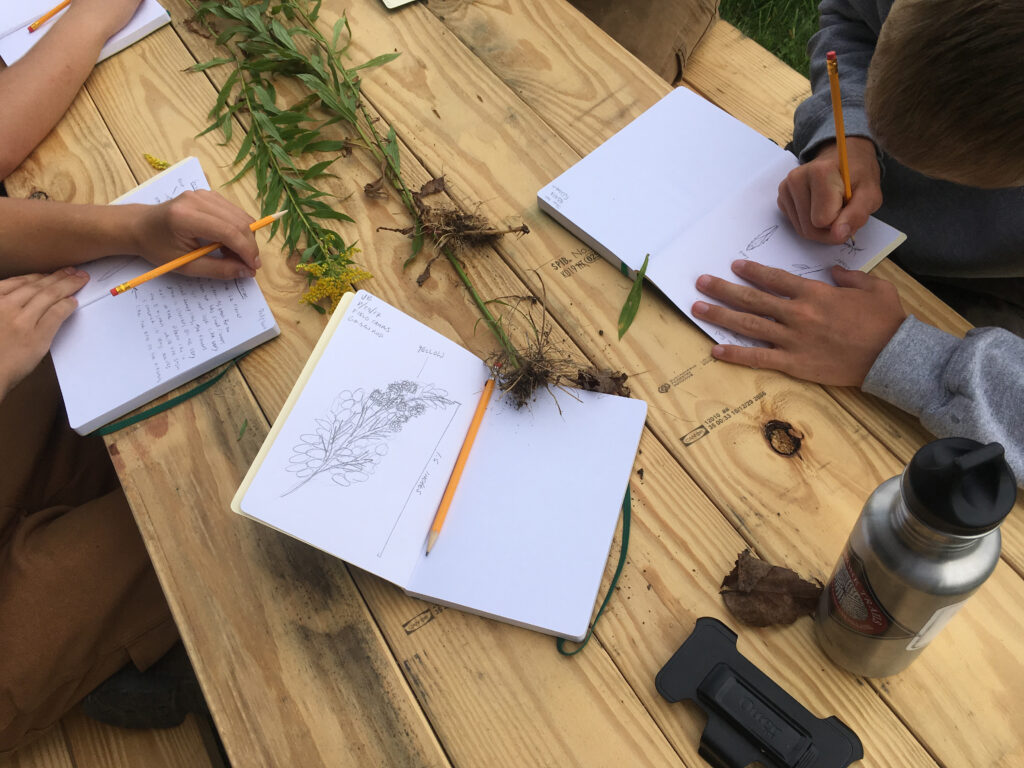Signature Programs
Although the academics at St. Johnsbury Academy are exceptional across the board, a number of programs truly set us apart. From high-level math to the AP Capstone Diploma, from the culinary arts to fashion design, our Signature Programs ignite passion within our students, often leading them to pursue careers in fields first explored on our campus.
AP Capstone Diploma
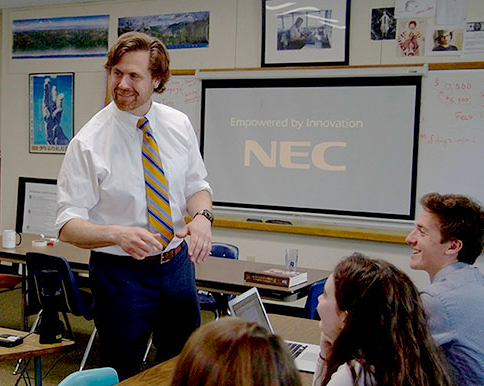
St. Johnsbury Academy is one of a short list of schools worldwide that offers the AP Capstone Diploma program. SJA was selected to offer the program by the College Board from among more than 18,000 independent and public schools. The other U.S. boarding schools selected to participate during the first year of the program were Choate Rosemary Hall, Taft School, and Deerfield Academy.
Completion of the new AP Capstone Diploma involves a two-course sequence: AP Seminar followed by AP Research. Students who complete the AP Seminar and Research courses and earn scores of three or higher on the subsequent exams, as well as on at least four other AP exams, will earn the AP Capstone Diploma.
Students successfully completing only the AP Seminar and AP Research courses and exams will earn the AP Seminar and Research Certificate. The Academy has a long history of offering AP courses, dating back to the 1980s, and currently offers over 31 academic and fine art AP courses.
Applied Science and STEM Intensive
St. Johnsbury Academy’s Applied Science and STEM Intensive signature program allows students to focus on three distinct pathways, both through their classes and extra-curricular opportunities. Engineering Design and Development,, Biomedical and Health Science, and Sustainability Studies concentrations give STEM-focused students an exceptional introduction to and strong foundation for their future studies.
Engineering Design and Development Concentration
Our Engineering Design and Development program is a multi-faceted system of guidance, coursework, mentoring, and training that provides students with pre-university experience in engineering and design, including in computer science. We aim to increase the number of students—particularly those students traditionally underrepresented in the STEM disciplines—in science and technology programs.
Program Features
-
Authentic, project-based, hands-on coursework
-
Access our Maker Space with 3D printers, laser cutter, CNC routers, vinyl cutter, etc
-
Dedicated computer labs, VR lab, and industry-standard software
-
Optional participation in the nation-wide FIRST Robotics competition
-
Computer Science pathways in programming, microcontrollers, and game development
Elective Coursework
Robotics, Game Design, Digital Electronics
Introduction to Engineering Design (CAD)
Civil Engineering and Architecture
Intro to Computer Science
AP Computer Science Principles
JAVA Programming, AP Computer Science A
Engineering and Design Capstone
Extracurricular Opportunities
Science Olympiad
CodeCraft (Maker Space club)
BIOMEDICAL AND HEALTH SCIENCES Concentration
SJA’s Biomedical and Health Sciences offerings include a variety of elective coursework and hands-on opportunities to provide students with a pre-university experience in allied health fields. Students are supported in pursuing and presenting undergraduate-level research with the mentorship of science faculty, and/or internship experiences through our partnership with SJA’s Career and Technical Education program. Many students continue their research by completing a related Senior Capstone project.
Program Features
- Meaningful connections between coursework and individualized studies
- Opportunities for real-world internship experience
- Learn research skills in SJA’s Independent Science Studies Lab, or in conjunction with the Fairbanks Museum STEM Lab and the NH Academy of Science
- Competition and Presentation/Publication opportunities
Elective Coursework
AP Biology, AP Chemistry, AP Physics
Anatomy & Physiology, Genetics, Biotechnical Engineering
Independent Science Research
Psychology & Sociology / AP Psychology
Sports Medicine 1/2, Health 2
Statistics / AP Statistics
LNA Certification or Human Services
internship via CTE programs
Extracurricular Opportunities
Science Fair (Regional and State)
Brain Bee (Neurology Workshops
and Competition)
Science Olympiad
SUSTAINABILITY STUDIES Concentration
All Academy students take Integrated Science 3, a course in Research Methods and Environmental Systems. This is an interdisciplinary exploration of earth and human systems and how scientists learn more about these relationships. For students passionate about the outdoors and seeking concentrated study in environmental or field-based science, SJA’s Field Semester is an opportunity to pursue field-based research in an immersive setting.
Program Features
- Coursework is outdoors and hands-on
- Based at the Academy’s nearby Dussault Center, a 75-acre property with both agricultural and forested areas
- Provides a solid foundation for pursuing further education and careers in natural resource management, ecosystem science, outdoor education, environmental engineering, and related disciplines
Field Semester Embedded Coursework
Environmental Science (fulfills Integrated Science 3 credit)
Ecology
Environmental Literature and Composition (junior English credit) or Senior Capstone
Additional Electives (on main campus)
Wildlife Biology
AP Environmental Science
Extracurricular Opportunities
Environmental Club
Farm & Garden Club
Science Olympiad
Outing Club
International Travel and Cultural Exchange
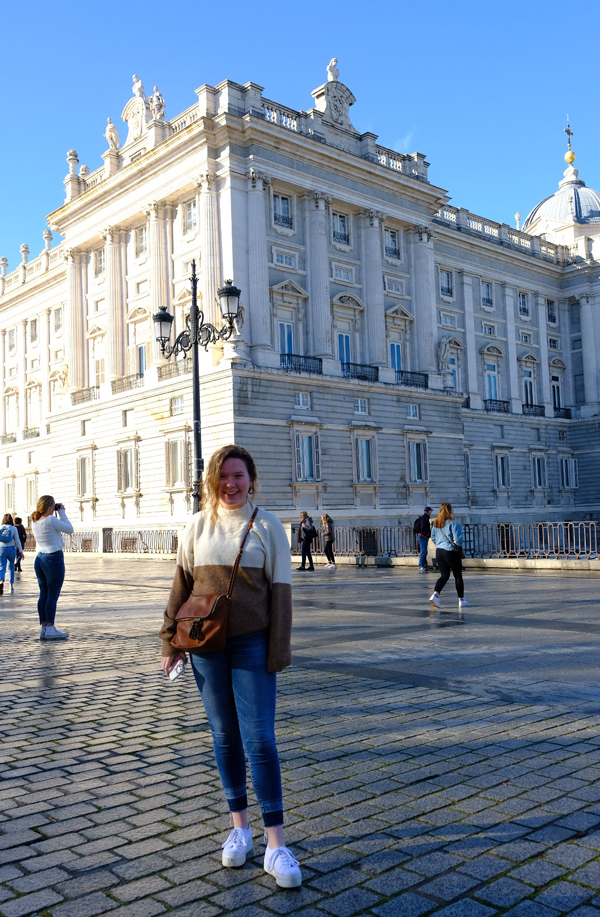
The Academy offers a wide range of international trips every year. These trips build upon the diversity of cultures experienced by students every day at school here; our resident students represent nearly 30 countries. Whether students want to travel to France or Costa Rica to improve their French or Spanish skills, learn to make intaglio prints in Italy, head to Southeast Asia, India, or Ghana to take part in service trips, or see Big Ben in London or the Eiffel Tower in Paris, we have a trip for them! Trips take place during winter or spring breaks, or even over the summer. These trips have become a tradition at the Academy, and students who participate in them often find them to be life-changing experiences.
> View the International and Domestic Trip Offerings for 2023-2024
Colwell Center for Global Understanding
The Colwell Center for Global Understanding at the Academy fosters global education. The Colwell Center coordinates diversity programs, cultural events, international exchange programs, and many student trips abroad each year. The Center also sponsors a speaker series featuring academics, diplomats, and other leaders, some of whom come to us from the Weatherhead Center for International Affairs at Harvard University. Additionally, it sponsors the Colwell Scholars program in which students meet to discuss world affairs, often in small groups with speakers from the Harvard Weatherhead Center.
The Colwell Center was launched in 2003 through a gift from the Steven B. Colwell family of Carlsbad, California, with the goal of creating a forum for sharing ideas and exploring cultural differences and similarities, leading to better global understanding. Members of the donor family include Steven Colwell II, who graduated from the Academy in 1987; Tyler Colwell of the Class of 1991; and Christopher Colwell, a 2003 graduate.
The Colwell Center also coordinates a number of international and domestic trips focusing on service learning, outdoor adventure, art, and language.
Colwell Center Speaker Series
Speakers with the Fellows Program at Harvard University’s Weatherhead Center for International Affairs are hosted by members of the Academy’s Colwell Scholars program, which is designed to encourage students’ interest in international issues and cultures and provide them the opportunity to deepen their knowledge and understanding of the world.
Post-Calculus Mathematics
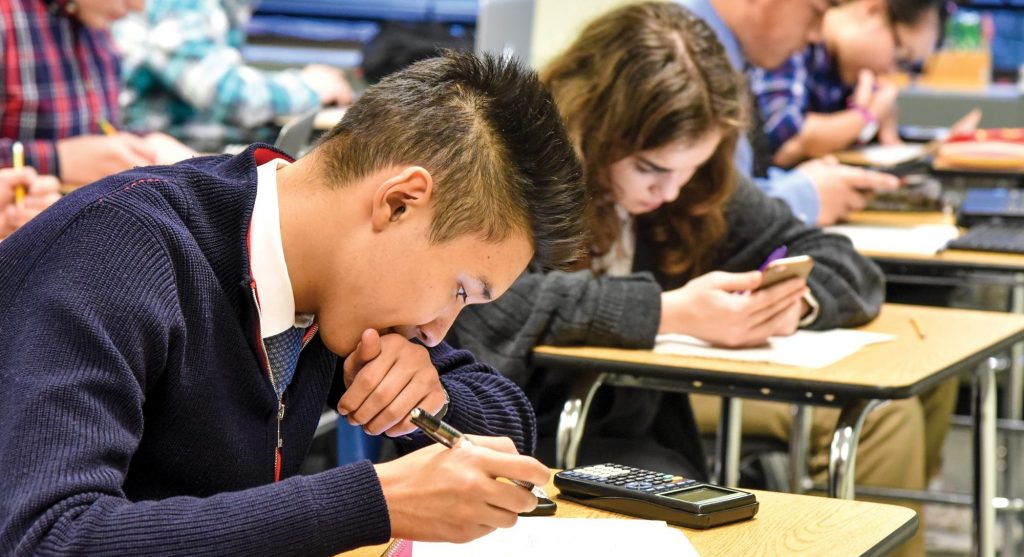
The sky is the limit in St. Johnsbury Academy’s mathematics department. We offer a strong base with Algebra I, Algebra II, Geometry, Trigonometry, and Precalculus. However, because of our semester-based schedule, which allows a math class to be taken in the course of a semester rather than over a full year, many students move on to take AP Calculus AB and AP Calculus BC, AP Statistics, or AP Computer Science classes. If this isn’t enough math, particularly motivated students may continue to Multivariable Calculus and Linear Algebra. Math is cool at St. Johnsbury Academy.
Go to the Mathematics section of our Course Bulletin for details about the many math courses available at St. Johnsbury Academy.
SJA Arts Intensive
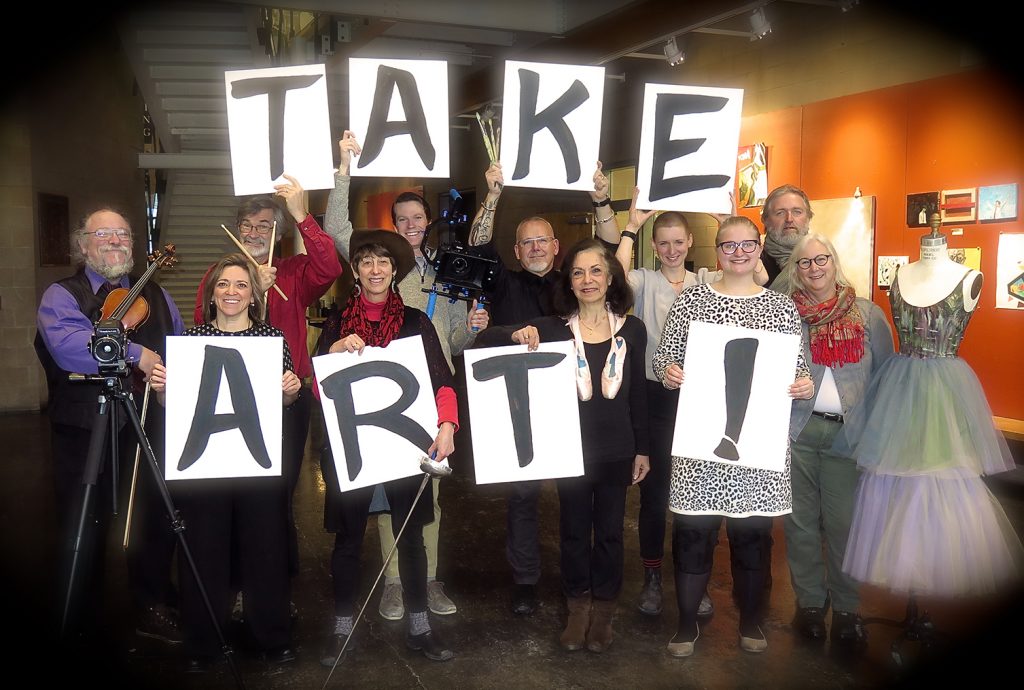
The St. Johnsbury Academy Fine Arts department attracts creatively curious students from all over the world. Our Fine Arts faculty are an integral part of the success of our programs. They are all professional working artists and exhibit or perform their work regionally and worldwide.
A particularly compelling part of our Fine Arts department is our SJA Arts Intensive. Our course structure allows art students to take either a wide range of classes for a broad artistic experience or to concentrate their study in one medium for three or four semesters — engaging fully — for an in-depth experience. The SJA Arts Intensive is available in both our visual and performing arts courses: Anatomy and Figure Drawing, Printmaking, Photography, Fashion Design, Filmmaking, Digital Design, Clay, Sculpture, Water-based and Oil Painting. Performing Art classes include: Acting, Stagecraft, Ballet, Modern Dance, Popular Dance, Band, Jazz Band, Chorus, Strings, and Guitar.
All classes are taught in our beautiful, state of the art, building, the Charles Hosmer Morse Center for the Arts.
SJA Technical Career Intensive
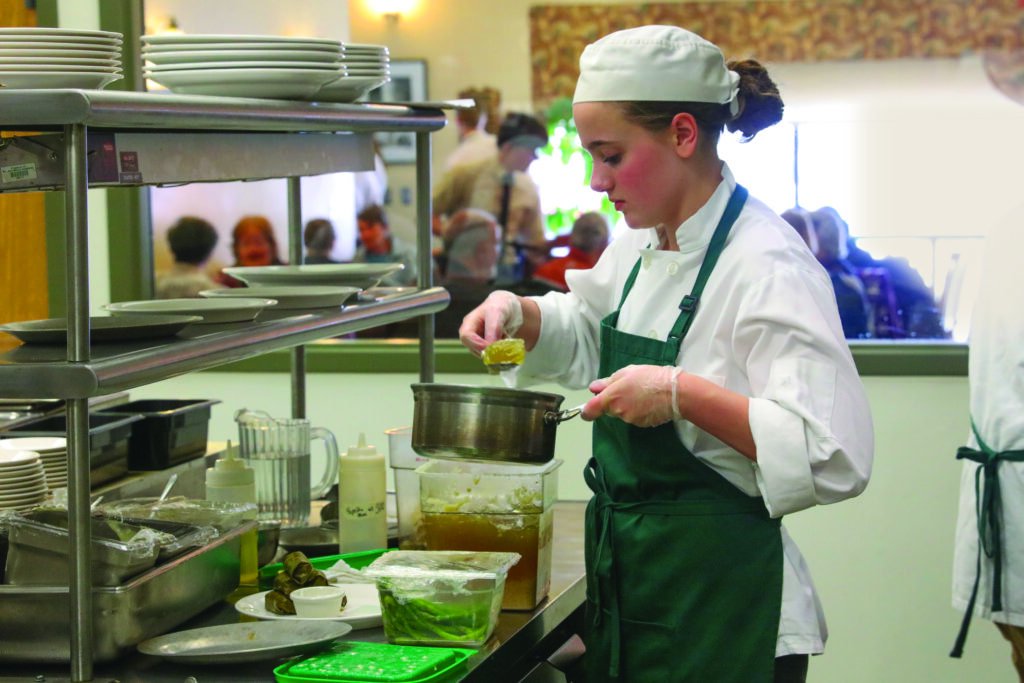
St. Johnsbury Academy differs from other schools in many ways, and one of the most compelling is access to our award-winning technical education program. Whether a student is planning to seek work or further education in a technical field or plans to attend college, they are able to take courses within our CTE career clusters: Agriculture, Food, and Natural Resources; Architecture/Construction; Business and Management; Hospitality and Tourism; Human Services; and Transportation, Distribution, and Logistics.
Within several of these clusters, students can pursue our SJA Technical Career Intensive: a program that allows interested students to delve deeply into a single area of study. As they work through their chosen Technical Career Intensive Concentration, students obtain impressive experience and credentials that translate into a competitive edge in future study or the pursuit of a career.
Technical Career Intensive Concentrations:
Automotive Technology Concentration (3 courses)
Construction Concentration (3 courses)
Culinary Arts Concentration (3 courses, including The Hilltopper Restaurant)
Electricity Concentration (3 courses)
Human Services Concentration (3 courses)
Natural Resources Management Concentration (3 courses)
Woodworking Concentration (3 courses)
Welding Concentration (2 courses)


